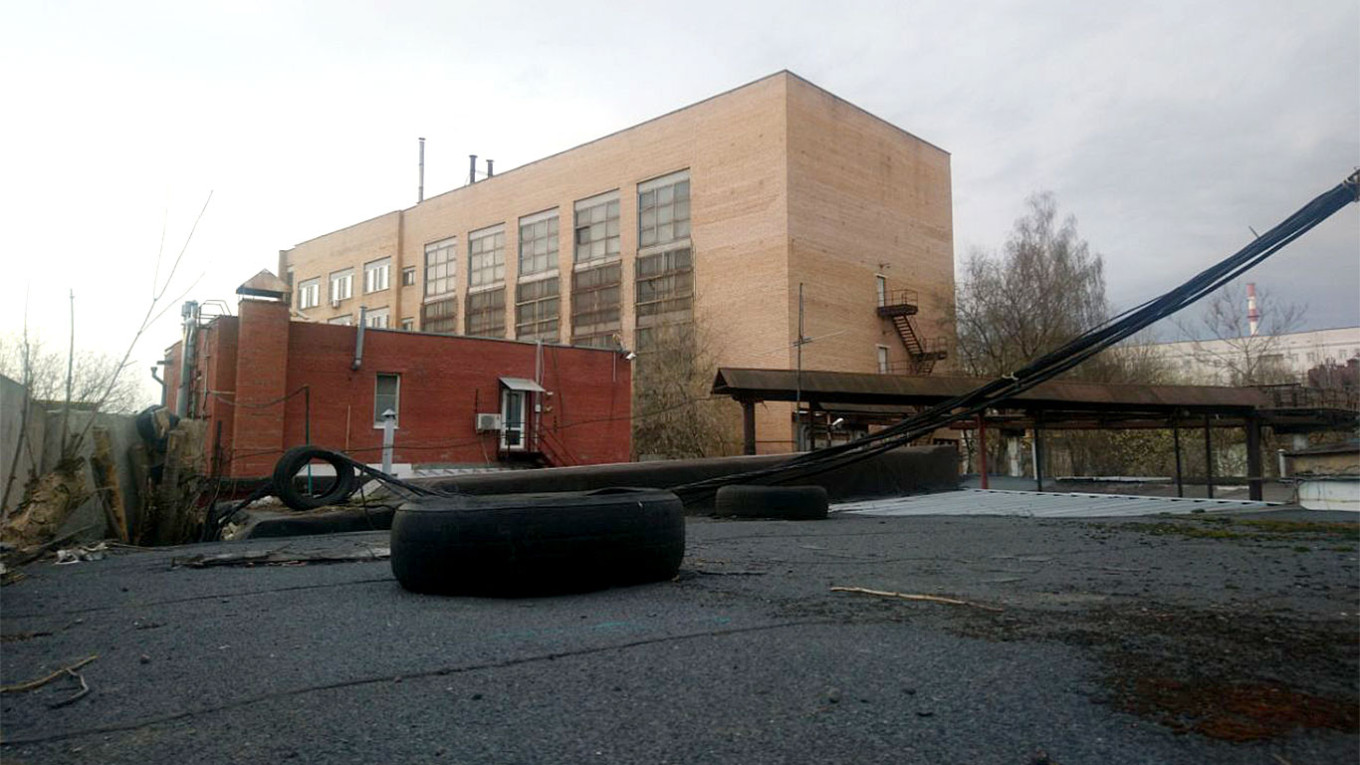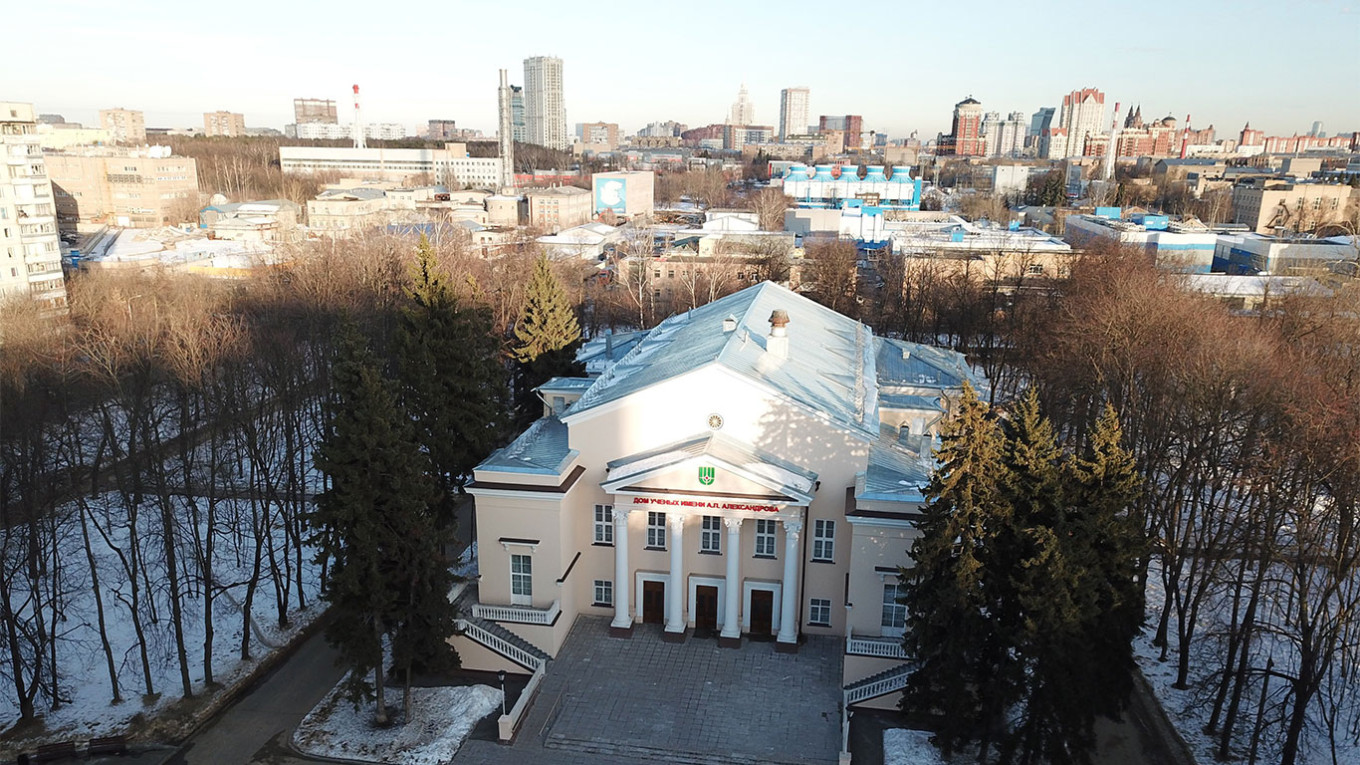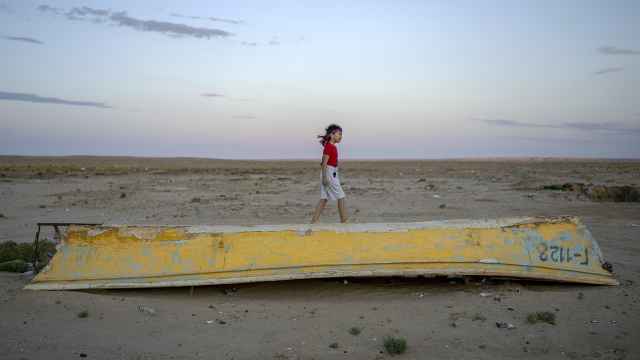Nearly four decades ago today, the Soviet Union witnessed the worst nuclear disaster in history when the fourth reactor at the Chernobyl nuclear power plant in Ukraine exploded.
In the present-day Russian capital, another potential radioactive threat lies dormant beneath Muscovites’ feet.
In Moscow’s northwestern Shchukino district, city authorities are planning new developments atop underground pipes carrying liquid radioactive waste, with plans to erect business and residential buildings, a school and a kindergarten.
Locals and experts say these extensive construction works could damage the pipes, potentially spilling this radioactive waste into the environment.
“Inside the old pipes, there are centimeter-thick deposits of radioactive salts. There's a huge cocktail there, with many different radionuclides present,” said Andrei Ozharovsky, a nuclear physicist and antinuclear campaigner.
“In the event of damage to a functioning pipe ... it could lead to the simple spillage of its contents, resulting in local contamination,” Ozharovsky told the Moscow Times.

If the project goes forward, it will entail demolishing a garage complex on Shchukino’s Rogova Ulitsa — further angering residents with cars from over 1,400 garages congesting the already crowded local courtyards.
Covered threat
Moscow’s Shchukino district is home to several scientific institutions. The district was the cradle of Russia’s nuclear industry in the 1940s and instrumental in the creation of the first Soviet atomic bomb.
Among them are the Kurchatov Institute and the Bochvar Institute of Inorganic Materials, both involved in nuclear science to this day. For decades, their research has generated nuclear waste, transported via underground pipes to Moscow’s liquid radioactive waste processing plant in the same district.
Due to the secrecy surrounding this nuclear cluster, with information often classified during correspondence with authorities, the exact volume of radioactive materials involved and the scale of a hypothetical accident remain unclear, Ozharovsky said.
Experts familiar with nuclear research offered their best guesses.
“As someone with a specialized education, I can say that enterprises like radiochemical experimental workshops at the Bochvar Institute, as well as nuclear reactors and other facilities at the Kurchatov Institute, cannot operate without generating radioactive waste, primarily liquid waste,” Ozharovsky said.

According to Ozharovsky, the worst-case scenario would see radioactive substances leak from damaged pipes into the ground in liquid form, eventually finding their way into streams feeding the Moskva River, Moscow’s main waterway.
“They [spilled substances] will disperse, creating a zone of radioactive contamination that will need to be fenced off,” he said. “No construction can take place within this area, and it will be very expensive to clean up since radioactive substances tend to disperse quite easily but are very difficult to collect back — we know this from Chernobyl and other accidents.”
Vladimir Mordashov, a leading expert at the Kurchatov Institute, where he has worked since 1955, voiced similar concerns this month.
“The soil beneath the [garage] cooperative is essentially a graveyard of long-lived radioactive waste,” Mordashov said during a roundtable discussion on the issue at the Moscow City Duma that included concerned deputies, experts and locals.
“The radiation levels there are [so high] that it's not safe to build anything there. The only option for this area is to fill the entire cooperative with soil and plant vegetation," he said.
Besides directly affecting the pipes, the operation of heavy construction machinery could also set off ground movement. According to Moscow’s general city plan, the site sits on unstable land prone to dangerous geological events.
At the roundtable, several Shchukino residents also spoke out against the development plans and urged authorities to halt the project.
“In general, all the people we talked to on the street ... were unanimous that we need to preserve this [garage] complex. We don't need any specific development there; our area is already oversaturated with both cars and residential buildings,” said Alexander, who lives close to the site.
Local resident Galina said that officials have systematically ignored residents' calls despite their numerous attempts to knock on all doors.
“The residents, who are not very familiar with legislative activities, write their letters from the heart. And I believe that the Moscow government is simply, one might say, taunting the residents who protest, who send out cries from their soul, but only receive bureaucratic replies,” she said.
A petition against construction has garnered 1,200 signatures so far.
Powerful interests
Throughout Mayor Sergei Sobyanin’s tenure, the Russian capital has poured money into construction projects, drawing criticism for corruption-prone schemes that disregard the opinions of locals.
Public discontent regularly flares over various development plans, often those involving the clearance of green spaces. In 2019, residents also protested the construction of a highway that they warned could unleash buried radioactive materials from the nearby nuclear waste site.
At a first glance, the conflict in Shchukino is hardly unusual in this regard.
State Duma deputy Denis Parfenov, who has met with hundreds of residents opposing the project on Rogova Ulitsa, claimed that the Moscow government puts the construction industry’s agenda before locals’ concerns.
“We see widespread lobbying efforts aimed at designating various areas of Moscow for urban development, the vast majority of which boil down to … generating high profits for those carrying out this development," Parfenov said during an April roundtable at the Moscow City Duma.
However, this time, the developers’ interests collide with those of state nuclear energy corporation Rosatom in addition to those of Moscow residents worried for their health and the environment.
Careless activities near the pipes could directly impact Rosatom’s institutions, which would prefer the functioning of the pipes and proper disposal of the hazardous waste they carry to continue undisturbed.
According to Dmitry Grinchik, a representative of Rosatom’s Bochvar Institute, which manages the pipes, regular monitoring shows normal radiation levels at the site.
"We [at Rosatom] understand the priority of safety,” Grinchik said this month. “In the case of uncoordinated actions, these works [construction atop the pipes] may affect our site [the pipes].”
The Bochvar Institute also confirmed the threat in an official letter to the Moscow government last year, warning about the “special drainage” under the garages on Rogova Ulitsa and the sanitary protection zone established around it.
Russian legislation prohibits the construction of residential and public buildings, including schools and kindergartens, within a sanitary protection zone.
Yet a year later, city authorities do not appear keen for dialogue, having notably been absent from the recent Moscow City Duma meeting.
The Moscow government did not respond to The Moscow Times’ request for comment.
Ozharovsky warned that sweeping the issue under the rug would risk potential accidents.
He also urged the nuclear enterprise cluster in Shchukino to declassify information about the pipes and visibly mark the sanitary protection zone to prevent any future construction there.
"There is radioactive waste here, after all,” he said.
“This could indeed lead to serious problems, both now and in the future."
A Message from The Moscow Times:
Dear readers,
We are facing unprecedented challenges. Russia's Prosecutor General's Office has designated The Moscow Times as an "undesirable" organization, criminalizing our work and putting our staff at risk of prosecution. This follows our earlier unjust labeling as a "foreign agent."
These actions are direct attempts to silence independent journalism in Russia. The authorities claim our work "discredits the decisions of the Russian leadership." We see things differently: we strive to provide accurate, unbiased reporting on Russia.
We, the journalists of The Moscow Times, refuse to be silenced. But to continue our work, we need your help.
Your support, no matter how small, makes a world of difference. If you can, please support us monthly starting from just $2. It's quick to set up, and every contribution makes a significant impact.
By supporting The Moscow Times, you're defending open, independent journalism in the face of repression. Thank you for standing with us.
Remind me later.






